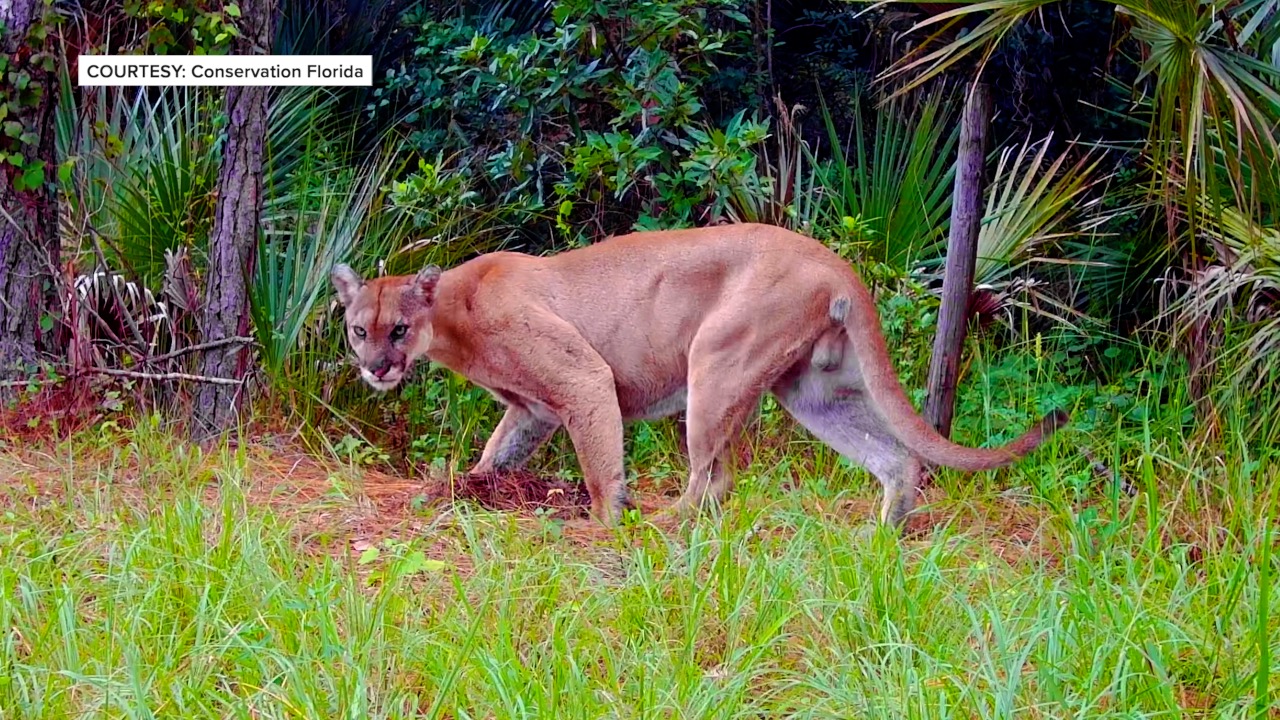HIGHLANDS COUNTY, Fla. — A $6.1 million grant will fund a new wildlife crossing in Highlands County - a big step toward protecting Florida’s endangered species, like the panther.
With panther deaths nearing a record high in 2024, conservationists say these crossings are critical to saving the species.
Watch Community Correspondent Austin Schargorodski's report here:
The Federal Highway Administration awarded the grant to FDOT to build an underpass and fencing along US-27 near Venus, designed to help animals safely cross the road. With only around 200 panthers left and 36 deaths already in 2024, conservationists warn roads are a major threat.
“One of the biggest impacts of development that causes harm to the panther are vehicle trips,” said Julianne Thomas, Senior Environmental Planning Specialist with the Conservancy of Southwest Florida. "People just aren’t careful when they’re driving and they drive too fast. We all do it and it’s just too easy for panthers to get caught in the cross hairs."

The grant is part of the new federal Wildlife Crossings Pilot Program. Conservationists say these crossings will help panthers safely move through the Florida Wildlife Corridor and expand their shrinking population.
“We’re really trying to get panthers to move North and take up more space in the state of Florida like they did, you know, 50, 60, 70, 80 years ago. You know, we need to have more than one population of panthers in order to keep them safe from extinction, and we can only do that if they’re in more than once place and right now they’re only in Southwest Florida,” Thomas explained.

Plus, it’s not just about wildlife. FDOT says collisions with animals cause 200 human deaths and 26,000 injuries each year. Earlier in 2024, FDOT also completed the first of three wildlife underpasses on I-4.
However, Jason Totoiu, Senior Attorney at the Center of Biological Diversity, says more wildlife crossings alone won’t be enough to save the Florida panther.
“We’re going to need to take some intervention steps here to really jump start this process," Totoiu said. "That’s going to require, from the center’s perspective, a concerted effort by the U.S Fish and Wildlife Service to both translocate and reintroduce individual panthers in these places northward of the Caloosahatchee."

Totoiu says the Endangered Species Act requires three populations of at least 240 panthers for the species to recover, and right now, there’s only one, which he says leads to future risks.
“That results in inbreeding because there’s not enough individuals to mate with. That can lead to abnormalities and reproductive problems in future generations,” said Totoiu.

But, despite the challenges, Totoiu says the new wildlife crossings offer hope for Florida’s state animal.
“I think we can get there, but it’s going to require an all hands on deck approach,” stated Totoiu.




